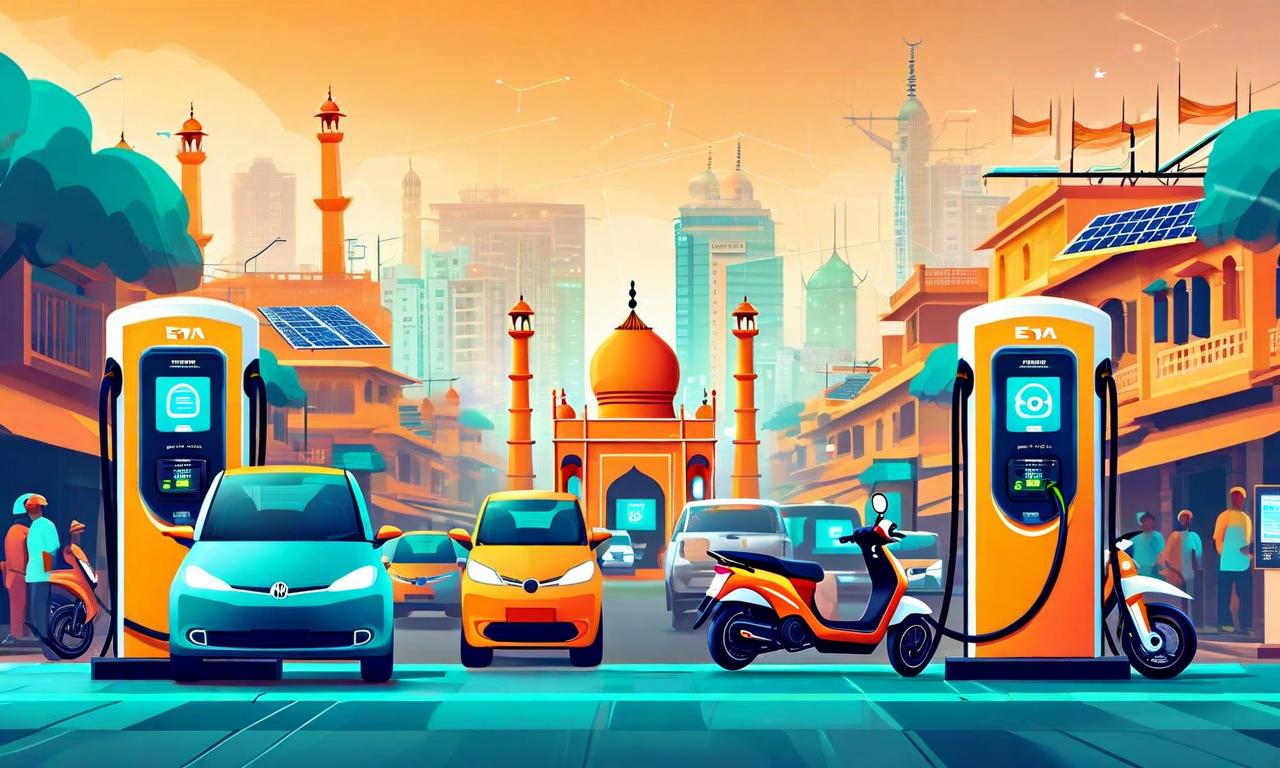Niti Aayog Proposes National EV Policy to Tap $200 Billion Opportunity
Niti Aayog has released a report titled 'Unlocking a USD 200 Billion Opportunity: Electric Vehicles in India', recommending a National Electric Vehicle (EV) policy. Key suggestions include phased mandates for EV production, financial support through a pooled fund, expanded regulatory measures, battery leasing industry development, and urban electrification pilots. The report highlights EV sales growth from 50,000 in 2016 to 2,080,000 in 2024, but notes that current 7.60% EV penetration falls short of the 30% target for 2030. Additional proposals focus on R&D for battery cost reduction, scaling up charging infrastructure, and improving data clarity on EV categories.

*this image is generated using AI for illustrative purposes only.
In a significant move to accelerate India's transition to electric mobility, government think tank Niti Aayog has released a comprehensive report calling for a National Electric Vehicle (EV) policy. The report, titled 'Unlocking a USD 200 Billion Opportunity: Electric Vehicles in India', outlines ambitious recommendations to boost EV adoption and manufacturing in the country.
Key Recommendations
The report suggests several strategic initiatives to propel India's EV sector:
Phased Mandates: Implementing gradual mandates for EV production and purchase while disincentivizing internal combustion engine vehicles.
Financial Support: Creating a pooled fund to provide lower-interest loans for electric buses and trucks.
Regulatory Measures: Expanding corporate average fuel efficiency norms to encourage automakers to produce more EVs.
Battery Leasing: Nurturing a battery leasing industry to reduce upfront costs for EV buyers.
Urban Electrification: Achieving 100% electrification of buses and freight vehicles in five cities as a pilot project.
Current EV Landscape
The report highlights the growth of EV sales in India:
| Year | EV Sales |
|---|---|
| 2016 | 50,000 |
| 2024 | 2,080,000 |
Despite this significant growth, EV penetration in India remains at 7.60%, far below the targeted 30% by 2030.
Additional Proposals
To further boost the EV ecosystem, Niti Aayog recommends:
- Intensifying R&D efforts to reduce battery costs
- Scaling up charging infrastructure across the country
- Improving data clarity on EV categories in official VAHAN data
Challenges and Opportunities
The proposed National EV Policy aims to address current challenges in the sector while capitalizing on the immense economic potential. By setting defined targets and timelines, the policy could provide a roadmap for stakeholders across the EV value chain.
As India strives to balance its economic growth with environmental sustainability, the successful implementation of these recommendations could position the country as a global leader in electric mobility. The proposed policy framework not only aims to reduce carbon emissions but also presents a significant economic opportunity, potentially unlocking a $200 billion market.
The ball is now in the government's court to review these recommendations and formulate a comprehensive National EV Policy that could reshape India's automotive landscape in the coming decades.
























